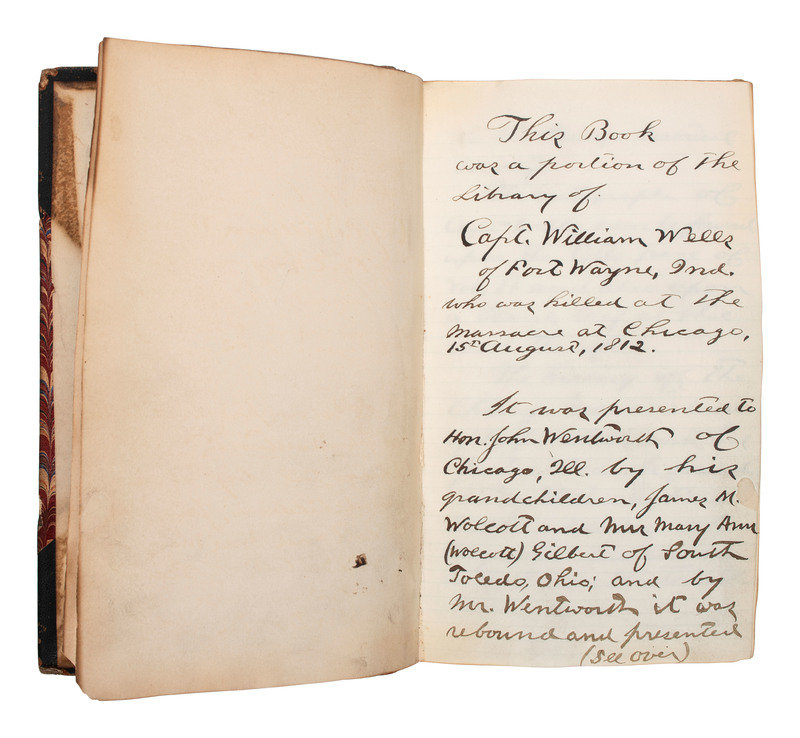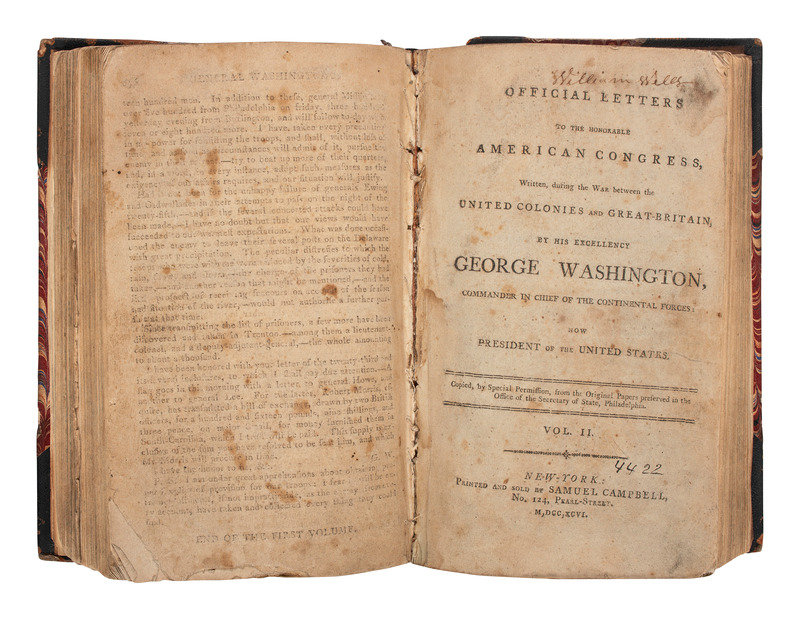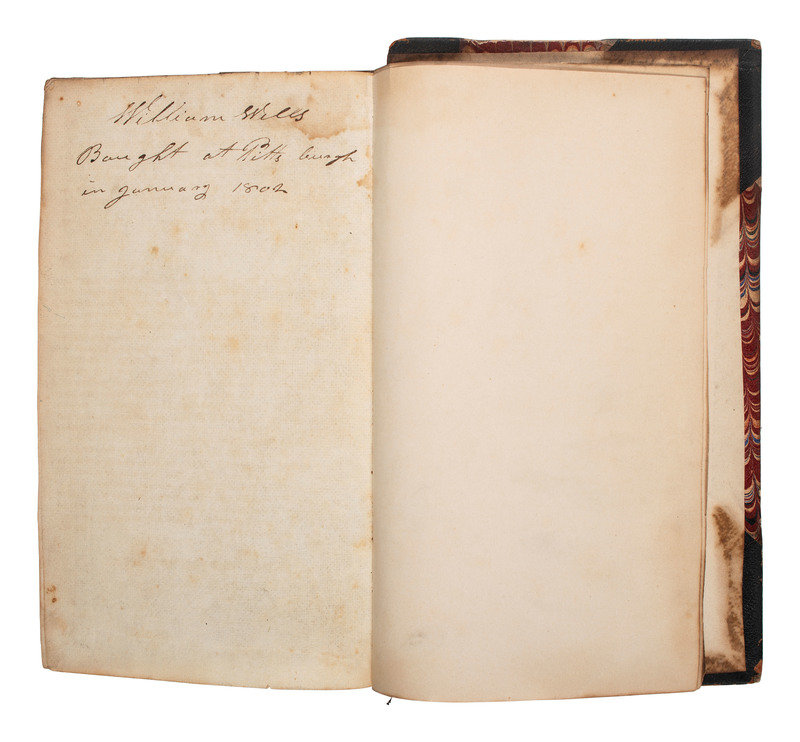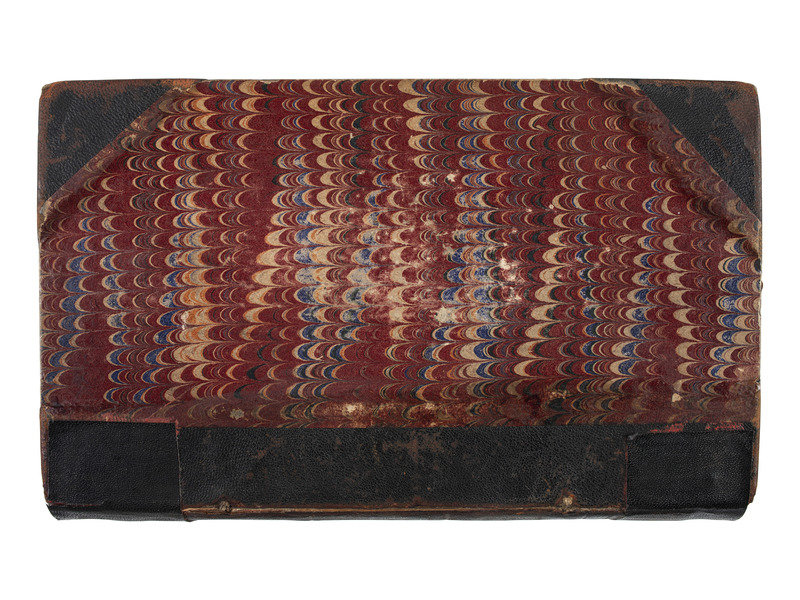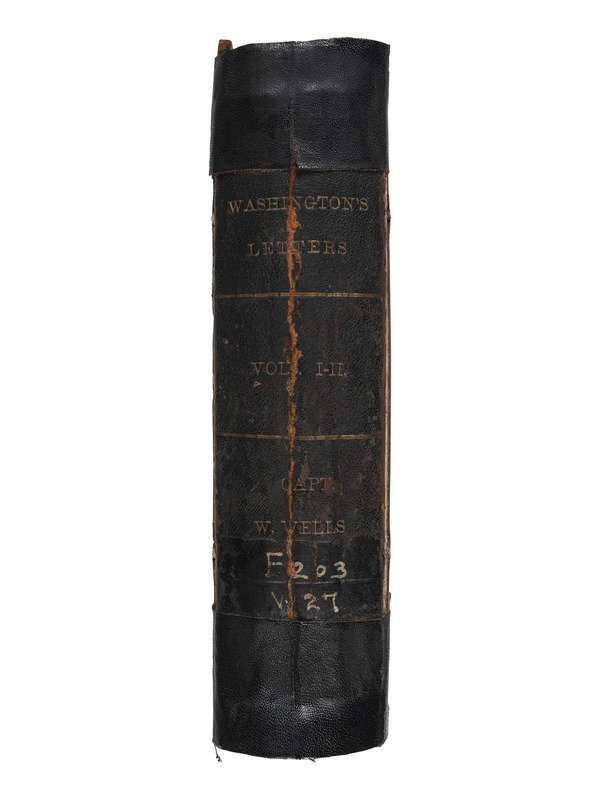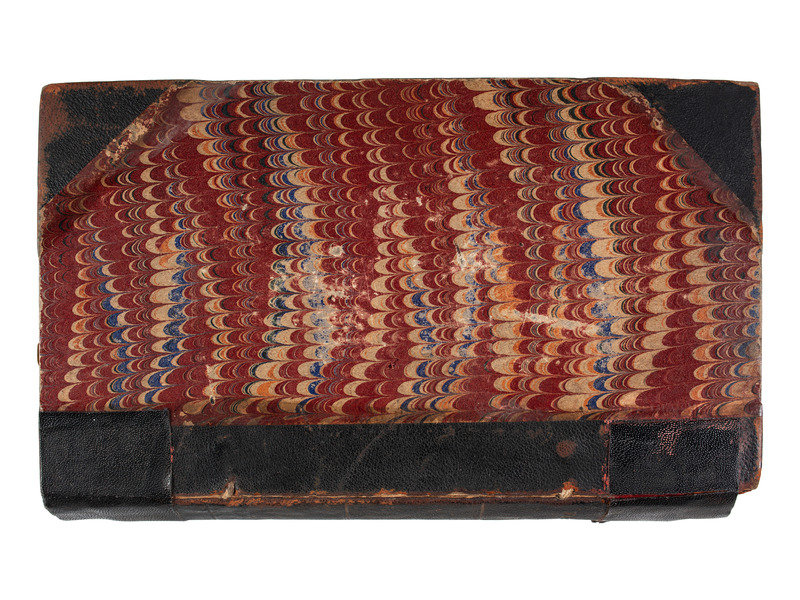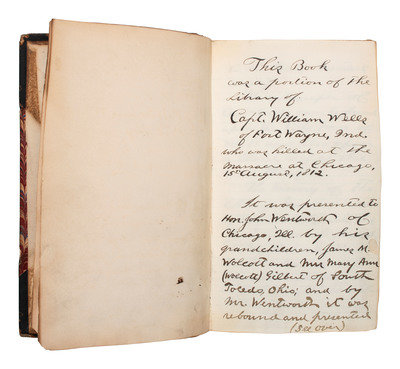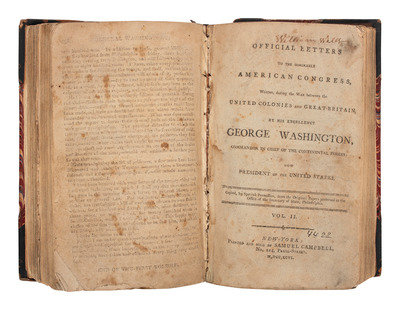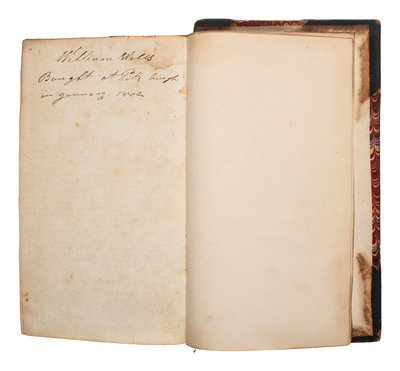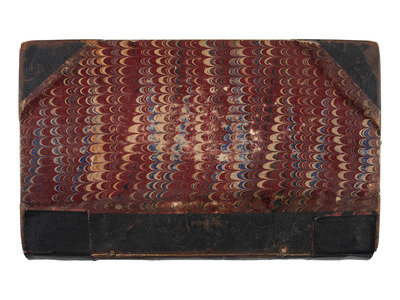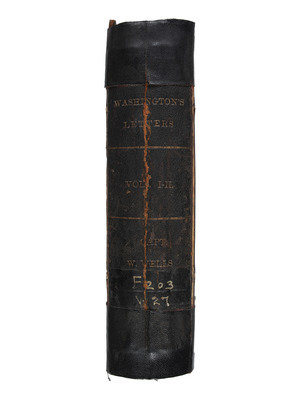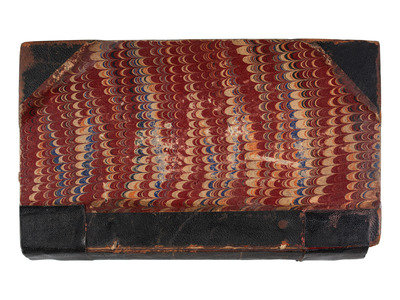Lot 26
[WAR OF 1812]. -- [WELLS, William (ca 1770-1812), his copy]. WASHINGTON, George (1732-1799). Official Letters to the Honourable American Congress... New York: Samuel Campbell, 1796.
Sale 1046 - American Historical Ephemera and Photography Featuring the Civil War and American Militaria Collection of Bruce B. Hermann
Lots 1-296
Jun 21, 2022
10:00AM ET
Lots 297-560
Jun 22, 2022
10:00AM ET
Live / Cincinnati
Own a similar item?
Estimate
$500 -
700
Price Realized
$1,750
Sold prices are inclusive of Buyer’s Premium
Lot Description
[WAR OF 1812]. -- [WELLS, William (ca 1770-1812), his copy]. WASHINGTON, George (1732-1799). Official Letters to the Honourable American Congress... New York: Samuel Campbell, 1796.
2 volumes bound in 1, 8vo. (Lacking title page to volume I.) Circa 1880 one-quarter morocco with marbled boards, smooth spine with gilt lettering (crack to spine, hinges started with library repair light scuffing). Provenance: William Wells, via descent (manuscript note bound in); The Gilpin Library, Chicago Historical Society (bookplate, library markings, manuscript note, letter from librarian confirming deaccession).
Later edition collection of George Washington's official letters to Congress. TWICE-SIGNED BY CAPTAIN WILLIAM WELLS, to the title page of volume II, and again on the rear flyleaf with purchasing information: "William Wells / Bought at Pitts burgh / in January 1802." Six additional leaves are bound in as preliminaries, with four blank leaves preceded by two pages of manuscript note: "This book was a portion of the library of Capt. William Wells of Fort Wayne, Ind. who was killed at the Massacre at Chicago, 15th August, 1812." The note continues with additional provenance and information about Captain Welles. For additional information about Captain Wells, please visit the complete listing at www.hindmanauctions.com.
______________________________________________________________________________________
William Wells (ca 1770-1812), was born the son of a captain in the Virginia militia during the Revolutionary War, moving to Louisville, KY by 1779. His mother died shortly thereafter and his father was killed in raids by local Native Americans. William was captured when he was 13-years-old by an Eel River Miami and Delaware raiding party and was adopted by Chief Gaviahate of the Eel River Miami and bestowed the name "Apekonit" (Carrot). In 1791, Wells led a group of Miami sharpshooters at St. Clair's Defeat, achieving one of the most significant victories of Native Americans over the U.S. Army. The next year, he was hired by Rufus Putnam in Cincinnati to assist in making a treaty with the Native Americans at Vincennes. Thereafter, he was hired to spy on the confederated Indian councils in 1792 and 1793. He became the equivalent of a captain in the Legion of the United States, acting as the head of a group of spies under the orders of General "Mad Anthony" Wayne.
Following the Treat of Greenville, Wells was appointed as a US Indian Agent to the Miami at the request of Chief Little Turtle, Wells's father-in-law. The two traveled to Philadelphia to visit President Washington. Wells disagreed with the policies of President Thomas Jefferson and Territorial Governor William Henry Harrison, and relations soured after Wells sided with Chief Little Turtle in opposition to the 1804 Treaty of Vincennes. After further disagreements, Wells was replaced as an Indian Agent.
In 1809, after the Treaty of Fort Wayne, Tecumseh took a more militant stance. Wells was the first to warn the US government about this development. After traveling to Washington, D.C., Wells gained the support of the government in a bid to keep the Miami from joining Tecumseh's confederacy.
When the hostilities broke out in the War of 1812, the Madison administration failed to warn the frontier about the declaration of war. The Britsh and their Native American allies knew several days before the Americans and a band of Potawatomi surrounded Fort Dearborn, present-day Chicago, demanding its surrender. Wells led a group of Miami from Fort Wayne to aid in the evacuation of the Americans. An initial evacuation was negotiated, but when the Pottawatomi learned that the whiskey and guns in the fort had been destroyed, they attacked with Wells, acting as a scout, killed in action.
Condition Report
Contact Information
Auction Specialist
